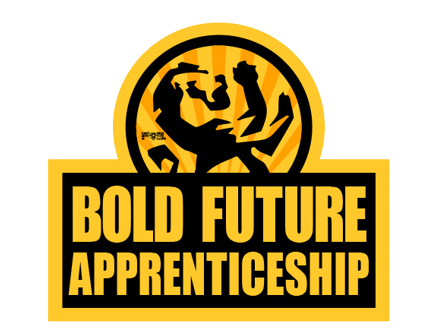Are you looking to begin a career in the trades? Are you trying to avoid the cost of a college degree? Are you a Journeyworker looking for more skills training and leadership opportunities? Are you a tribal or military member looking for a career?
IUPAT DC5 and our local unions have partnered with numerous state-of-the-art training facilities to offer you the education and tools needed for professional success and economic stability.
As an IUPAT DC5 member, you will earn a living wage and benefits while you complete your career training.
The Regional Training Center
The Regional Training Center’s mission is to find, train and retain the highest caliber apprentices and continue to elevate the skillsets of seasoned journeymen and journeywomen. The Regional Training Center is the pinnacle of what the Union and Signatory contractors can accomplish in cooperation together…developing individuals for the future.
Local Unions
New apprentices are expected to join the union within eight days of their start date and to keep their union membership in good standing. Several Locals operate within District Council #5. They are listed below.
Contact your local union to discuss wages, benefits, layoffs, union membership, payment of dues, travel pay, subsistence, or death in the family. If you are laid off, contact your Local and put your name on the out-of-work list. Failure to do this can cost you work opportunities and can jeopardize your unemployment claims.

How does your program work?
We help you locate a paid job with a Union contractor.
We require monthly reports of your work hours.
We require attendance to all Block Training (classes for all apprentices are now referred to as Block Training). Block Training is held every month for each level and is three days in a row. Block Training is completed during your own time during the school year.
Can you mail me an application?
No. Applications must be completed in person. Apply any Tuesday starting in January thru the end of September.
How and when will I know I’ve been accepted?
We will mail you a letter soon after the end of the month. If you are not accepted, we will tell you why. If you are accepted, we will give you the date of the next Orientation session. You will have three opportunities to attend.
Do I have to pay for the classes?
No. There is no charge for classes. Classes begin after you are sent to work.
Will I need a car?
Yes. You must have your own reliable transportation. Your job assignments will change, sometimes on short notice. Work shifts may be at night. You may be assigned to job sites up to 50 miles away.Also, classes are held at the Training Center which is difficult to reach by bus.
What should I do after I’ve been accepted into the program?
We will mail you a letter soon after the end of the month. If you are not accepted, we will tell you why. If you are accepted, we will give you the date of the next Orientation session. You will have three opportunities to attend.
What are the physical requirements of this career?
You must be able to:
Stand/walk for up to 8 hours a day
Lift/carry up to 50 lbs. frequently and 100 lbs occasionally
Climb ladders, planks, scaffolding, and work in high places (average height 30-40 feet)
Work above shoulder level
Work around fumes and dust.
When will I start work?
Once your name is on the Pool, you will be dispatched to a job as soon as jobs become available. This varies with economic conditions and the time of year. Most opportunities will come in the summer months.
How long does the program take?
These apprenticeship opportunities consist of 6,000 hours of on-the-job training for the Painter and Drywall Finisher programs, and 7,000 hours for the Traffic Control program. There is an additional 432 hours of related classroom instruction for each program.
Will I need to join a union?
Yes. Soon after you are dispatched for your first job, you need to join the Union. Initiation fee is currently $100.
How much will I make once the program is over?
pprentices start at a specified percentage of journeyman wages and work their way up during their apprenticeship. Wages are negotiated annually with the Unions. See Public Notice.
What if I'm laid off?
Construction work may involve seasonal lay-offs. Contact your local Union. They maintain an out-of-work list and will contact you when another job becomes available.
Is it hard to get into the program?
No. You need to meet the minimum age and educational requirements. To succeed in the program you need to attend classes regularly, submit your Monthly Progress Records on time, and prove that you are a good worker.
What do you mean by
Commercial work can include: painting schools, department stores, office buildings or any number of projects.
Industrial work can include: preparing and painting metal surfaces such as bridges, water tanks and other steel structures. This may mean working from a boom lift or spyder basket 40-60′ above the ground.
How can I get information about other apprenticeship opportunities?
The Bureau of Labor and Industries (BOLI) is the Oregon state agency that oversees apprenticeship programs.


